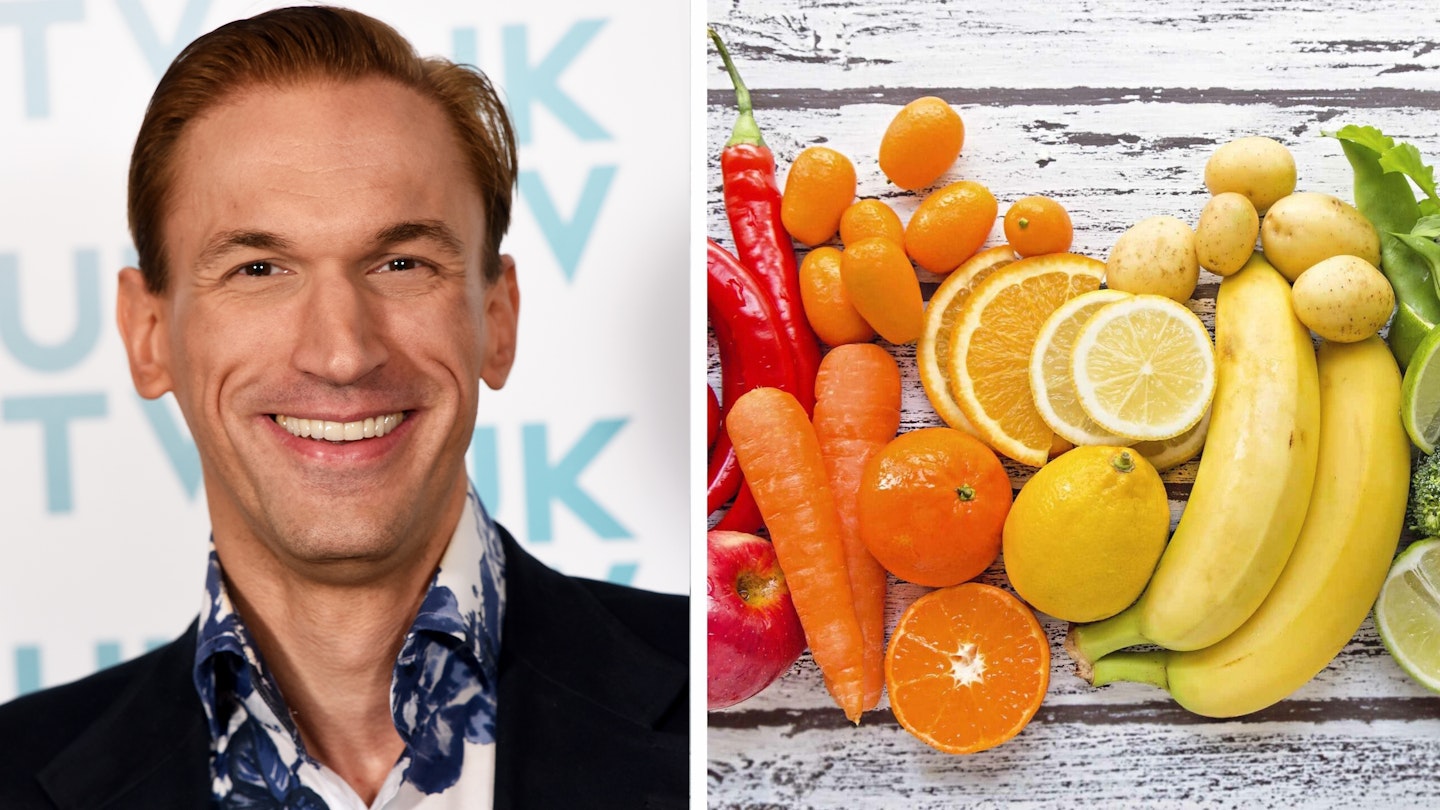We hear about gut health all the time – but these days it’s not about drinking mini yoghurt drinks. You can boost the good bugs in your gut by making simple changes to your diet – and it’s no fad. “The connection between gut bacteria and health is very important and very real,” says Dr Christian Jessen. “How diverse your gut bacteria is plays a role in how healthy you are generally – and that will influence your energy levels and wellbeing.” Here’s what you need to know…
Protect your immunity
“We don’t think about ‘bugs’ as being good, but many of the ones in your gut are all doing helpful things for your body,” explains Dr Christian. Recent research showed that people who ate a gut-friendly diet, including lots of plants, were 40per cent less likely to have severe COVID symptoms or require hospital treatment than people who ate an unhealthy diet. It’s also becoming clear a healthy gut helps us when we do get ill. “We’re seeing that by eating well, you get the best chance of responding to treatment. Interesting new research has shown that if you have really good, diverse gut bacteria, it can hugely improve your chances of recovering if you’re treated with immunotherapy for cancer, for example. So, if you’re visiting someone in hospital, take them healthy things for their gut,” says Dr Christian. “Rather than just grapes, bring a fruit salad and a bottle of kefir.”

Eat the rainbow
So what’s the best way to get all this health-giving variety into our diet? “Eat a diet with lots of different coloured fruits and vegetables, herbs and grains, nuts and seeds alongside a little meat and fish,” says Dr Christian. In fact, lots of experts recommend trying to eat 30 different plants a week. “If you think each one species of gut bacteria does one helpful job, the more you feed, the more things they’ll be doing,” says Dr Christian. And, you don’t have to spend a fortune on trendy fermented foods and drinks from health food stores. “Include sauerkraut, which you can get a big jar of for £1 in the supermarket; kefir, which you can pick up for less than a pound; and Greek yoghurt, which you may have in your fridge, anyway,” says Dr Christian. You don’t need loads, just a little bit regularly. “Variety is key, so have sauerkraut one day, Greek yoghurt the next, kefir the next,” says Dr Christian. It doesn’t have to be time-consuming, expensive or restrictive – just aim for colour, pick up whatever’s on offer in the fruit and veg, and enjoy the results!
Improve your mood
Believe it or not, there’s a constant conversation going on between your gut and your brain. “I call the gut the ‘second brain’, because it has a lot of neurological tissue and function in it,” explains Dr Christian. “A lot of the neurotransmitters that people have heard of, like serotonin, which are produced in the brain, are also produced in the gut. Serotonin, for example, is responsible for regulating your mood. When we produce it, we feel good.” One way to understand how connected your gut and your brain are, is to think about how we often “feel” strong emotions in our tummies. “When you get scared, you get a knot in your stomach; when you’re excited you feel butterflies – that’s no coincidence,” says Dr Christian. “It’s no complete cure, but research has shown that, for people with mild depression, improving their diet to positively influence gut health can reduce symptoms.”

Recover after antibiotics
One way to wipe out that lovely, varied gut bacteria you’ve been developing is taking a course of antibiotics. Their whole job is to wipe out the bad bacteria making you ill, but they wipe out the good as well – it’s collateral damage. “That’s why you should only take antibiotics if you really need them – not ask for them every time you’re sick – and complete the course, so that you don’t just get ill again and need more,” says Dr Christian, who also advises trying to replenish your gut health afterwards. “Make an effort to eat some fermented foods and lots of different coloured fruit and veg after you finish the course – and do the same for your children.”
Dr Christian gives his take on the hot health topics of the week in each edition of Closer magazine.
